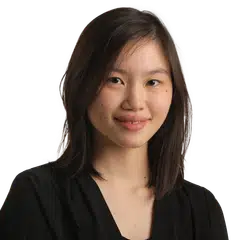I’ll always take pride in being a Singaporean-Bengali: NTU history grad’s dad was a migrant worker
Behind all academic results are young people quietly chasing their dreams, beating the odds, and hoping to make something of themselves. In More than Grades, a series by The Straits Times, we tell the stories of youth who are making waves in school and beyond.
Sign up now: Get tips on how to help your child succeed
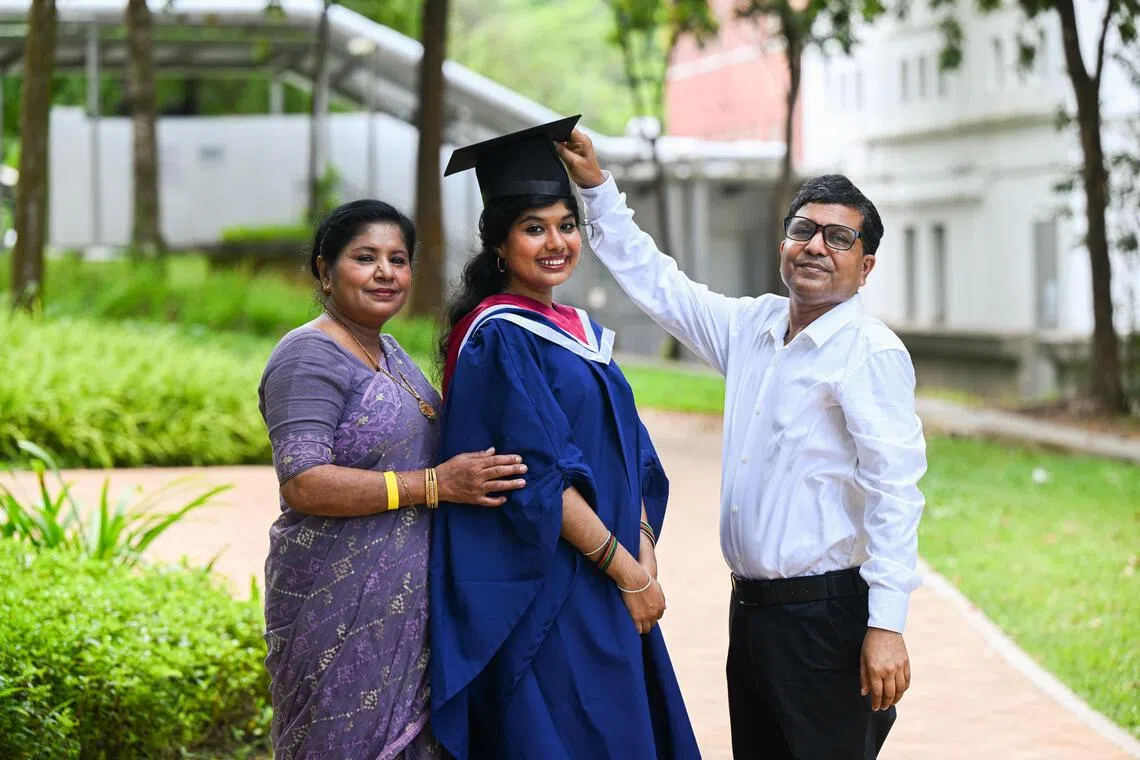
Ms Lutfa Shazneen Hasan, 23, who graduated from Nanyang Technological University (NTU) in July with a bachelor’s degree in history, with her parents, Madam Sharmin Akther and Mr Zahurul Hasan, who are both 52.
ST PHOTO: AZMI ATHNI
- Zahurul Hasan moved to Singapore to work as a technician in 1996, eventually gaining citizenship in 2006 with his family.
- His daughter Lutfa Shazneen Hasan was inspired by her family's story to study history in NTU and later work at the Migrant Workers' Centre.
- Shazneen aims to spotlight underrepresented communities and labour stories through a podcast, Stories from Saturday School.
AI generated
SINGAPORE - Ms Lutfa Shazneen Hasan grew up enthralled by her parents’ stories about life in a central Bangladeshi town along the Padma River and the country’s realities of war, famine and protests.
The 23-year-old, who graduated from Nanyang Technological University (NTU) with a bachelor’s degree in history in July, said their experiences inspired her to study immigrant history.
“Our family story is like that of hundreds of thousands of others, where those from the Global South have to migrate to other economies for their economic needs,” she said.
Ms Shazneen now works full time at the Migrant Workers’ Centre, where she helps foreign workers navigate tough job conditions as a senior specialist.
She provides support and advocacy for migrant workers facing employment, social or welfare challenges. This includes managing individual cases, liaising with government agencies, employers and embassies, and ensuring workers have shelter, welfare aid and information on their rights.
The Migrant Workers’ Centre, an initiative of the National Trades Union Congress and the Singapore National Employers Federation, runs a migrant recreation centre in Soon Lee Road in Boon Lay.
In 1996, Ms Shazneen’s father Zahurul Hasan came to Singapore to work as a mechanical technician in shipbuilding, leaving the political uncertainty of his home town behind.
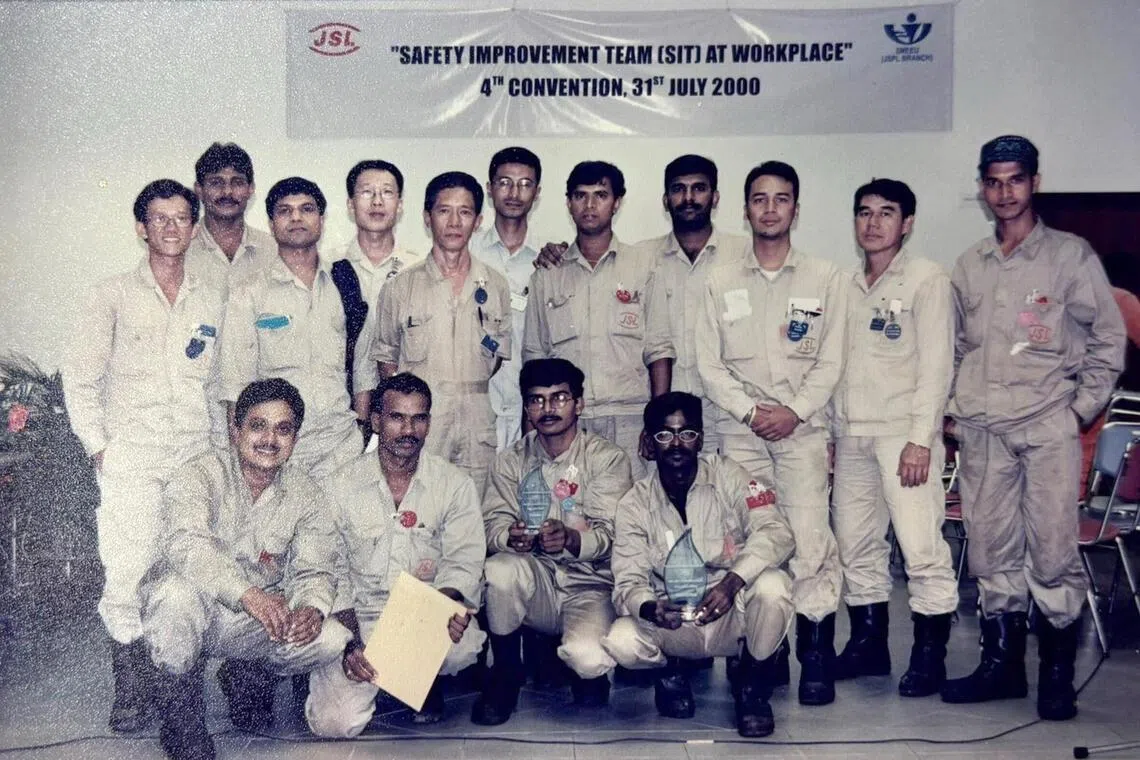
Mr Zahurul Hasan (third from left) with his colleagues at a workplace safety convention in 2000.
PHOTO: COURTESY OF ZAHURUL HASAN
His wife Sharmin Hasan joined him in 2001, and they had their first daughter, Ms Shazneen, the next year. They have two younger daughters aged 13 and 16.
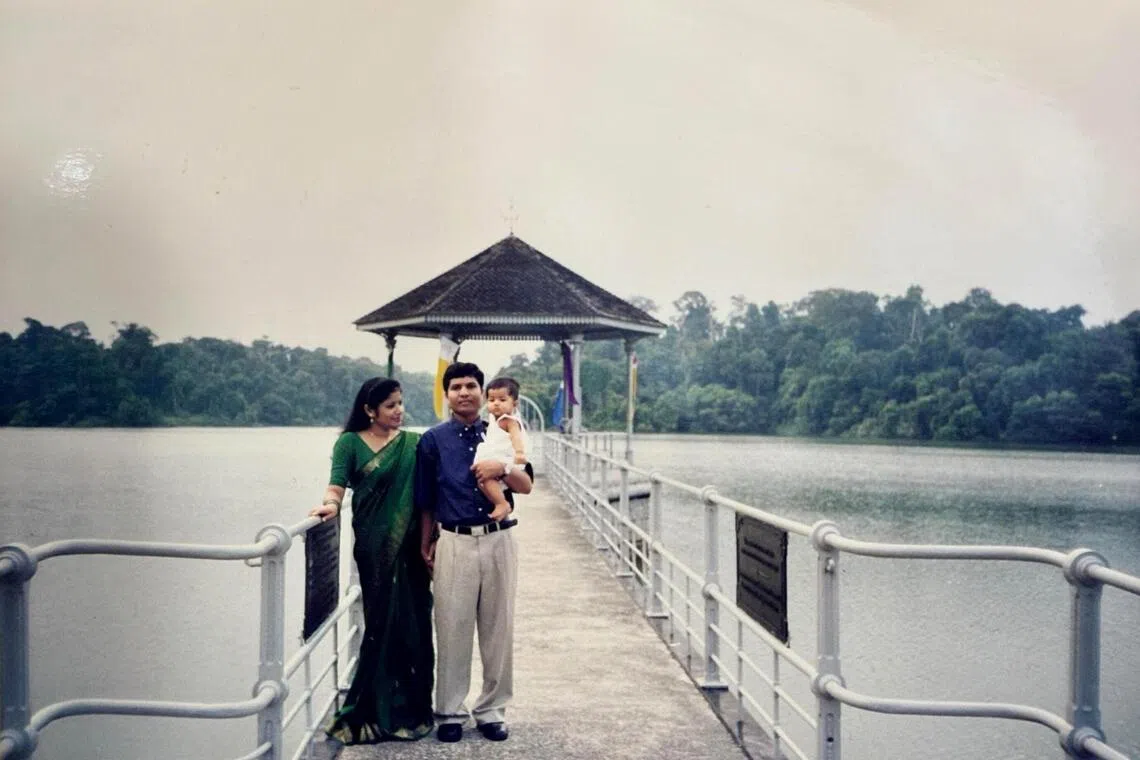
Mr Zahurul Hasan and Madam Sharmin Hasan with their daughter Lutfa Shazneen Hasan at MacRitchie Reservoir in 2002.
PHOTO: COURTESY OF ZAHURUL HASAN
The family, who live in Jurong West, got their Singapore citizenship in 2006.
Mr Zahurul, now 52, remained in the shipbuilding industry until 2018, after which he found his current work as an English-Bengali translator for government agencies. His wife is a homemaker.
He said: “In the beginning, we had some hardships, but later, I could say that Singapore is a very good place for opportunities. You can learn here. You can build up your career here.”
These experiences have shaped Ms Shazneen in more ways than one. “Growing up with that awareness, it instilled in me a very deep respect for the ways labourers built this country,” she said.
In her spare time, Ms Shazneen is launching a podcast with her friends from NTU, Stories From Saturday School, to document the lives of under-represented South Asian communities in Singapore.
She and her team are interviewing the elders in the community, and hope to “make sure that labour stories are remembered with dignity as part of Singapore’s history, and not just as mere economic labour units”.
The name of the podcast references non-Tamil Indian-language lessons, such as those on Bengali or Hindi, conducted on Saturdays for students taking the language as their mother tongue.
She said the workers at the Migrant Workers’ Centre open up to her as she speaks Bengali, sharing about their families and their relationships with colleagues and roommates.
They come “at the most vulnerable moments of their lives” to tell her their problems, from salary disputes to complaints of unfair dismissal to issues around housing and food.
She feels deeply for each worker, getting upset when she cannot be of help to them.
While Ms Shazneen’s family got their Singapore citizenship, there remains the question of how to navigate belonging here, she said.
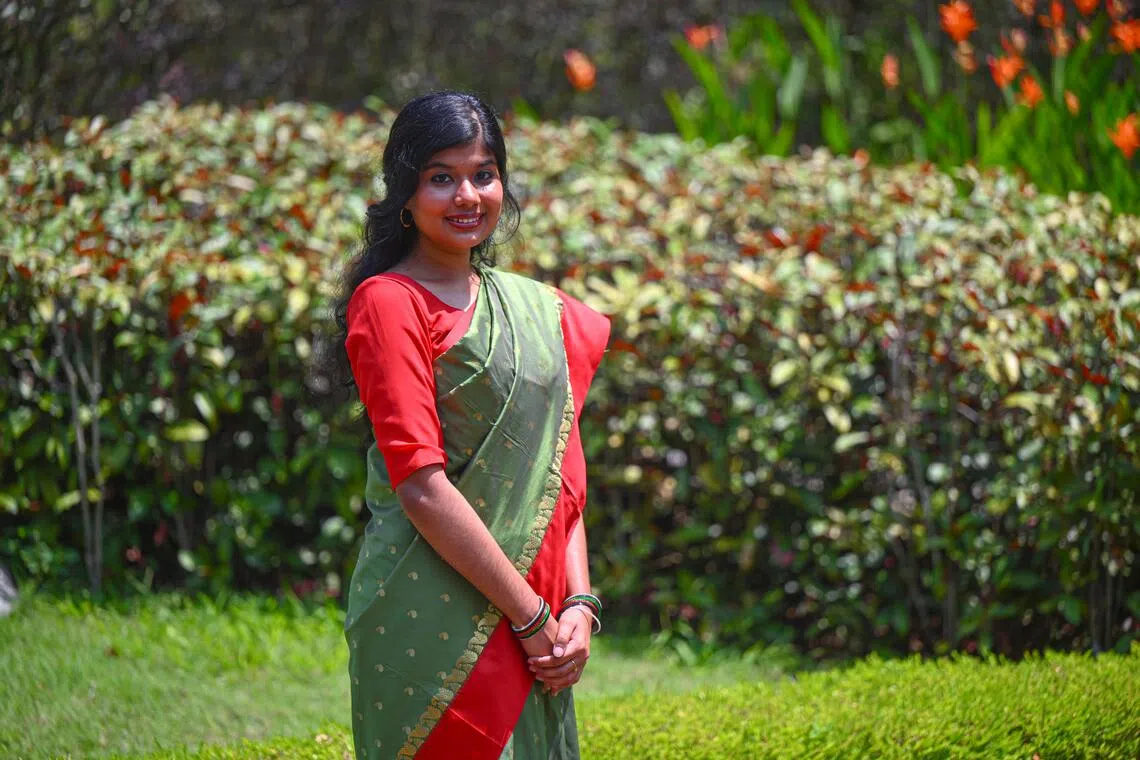
Ms Lutfa Shazneen Hasan now works full-time at the Migrant Workers’ Centre.
ST PHOTO: AZMI ATHNI
She said her family is “very Bangladeshi”, from how they still celebrate Bangladeshi holidays and mark its history, to how they “can’t start the morning without chai”.
“I think connecting with other immigrants and seeking solace in their shared experiences of wanting to build a home here helped my family feel less displaced in Singapore,” she said.
Ms Shazneen, who visited Bangladesh twice when she was younger, said: “I do not confine myself to one specific nation in my identity, for my being is neither fully here nor there. My national identity is hence not fixed nor stagnant. I will always take pride in being a Singaporean-Bengali.”
She said her decision to study history was shaped by a thirst for knowledge about power structures. “My teachers taught me that studying history is not just learning about the past, but also interrogating the systems that produced it, asking who benefits and who is left behind.
“I wanted to equip myself with the tools to critically analyse these structures so that the future is not just a repetition of old inequalities in new forms,” she said.
She said her professors went out of their way to ensure that the NTU history course was not just academically rigorous, but also applicable to the real world. She took modules like the history of migration, the urban coast, business history, as well as public and applied history.
She wrote a paper on how Singaporean attitudes towards migrant workers changed during the 1997 Asian financial crisis, around the time work permit holders started to be moved out of HDB flats and into dormitories.
Ms Shazneen said: “I hope for greater social conscience among Singaporeans, not just for migrant workers, but also for inequalities in general, for people in Singapore who live in poverty.”
Dr Joanne Chia, a lecturer at NTU’s School of Humanities, was Ms Shazneen’s internship supervisor in June 2024 for the 10-week internship programme for third-year humanities undergraduates.
She said Ms Shazneen made the uncommon choice to intern at Sun-Dac, a non-profit agency serving people with intellectual disabilities. Many of her peers took up roles such as journalists and archivists.
Dr Chia recalled how Ms Shazneen felt stressed planning a trip to the bird park, worrying over issues like whether the ground was even, what could trigger sensory overload, and the diet restrictions of the clients.
She reassured Ms Shazneen that paying attention to such details meant that she genuinely cared for her charges, and she went on to pull off a successful outing.
“The real education is not about getting As. To have a cause, to have a feeling and passion will really drive the person further in what they want to learn,” said Dr Chia.
Shermaine Ang is a journalist at The Straits Times, covering education and social issues.


